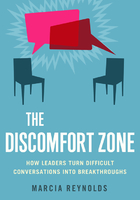The Economic Imperative
The Disneyland employees most pivotal to the famed theme park's customer satisfaction aren't the ones roaming around in Mickey Mouse and Goofy costumes.
They're the folks carrying brooms.
Scholars John Boudreau and Peter Ramstad have shown that the sweepers who continually tidy up the park and often answer guest questions are vital to Disney. The caliber of these workers and their ability to solve problems are crucial to the holistic “magic” Disney aims to create for visitors.
“Disney sweepers have the opportunity to make adjustments to the customer-service process on-the-fly, reacting to variations in customer demands, unforeseen circumstances and changes in the customer experience,” Boudreau and Ramstad have written. “These are things that make pivotal differences in the ‘Happiest Place on Earth.'… At Disney, sweepers are actually frontline customer representatives with brooms in their hands.”[1]
The importance of sweepers to Disney speaks to the way in which consumers' desire for integrated experiences is propelling companies to greater worthiness. For Disney to delight customers on premium-priced vacation packages, the company can't just focus on excellent rides, good food, and friendly costumed characters. It has to make sure even the employees carrying out clean-up duties are sharp thinkers and sociable to boot. It has to recruit the right people to be sweepers, train them, engage them, and retain them—it must be a good employer.
Consumer hunger for more than just goods and services is one of several economic factors ushering in the Worthiness Era. Others are technological change, global trade, and the public's growing focus on economic security. This chapter discusses each of these forces.
Consumer Desire
Providing a wonderful, relaxing time has been a key to Disney's success over the years. It has fulfilled children's fantasies of meeting beloved characters and taking thrilling rides while realizing parents' visions of making their kids' dreams come true. The company was ahead of the curve in recognizing that consumers want memorable experiences or “transformations,” where companies help individuals realize their aspirations.[2]
This desire on the part of consumers is not new—advertisers at the turn of the 20th century were trying to tie mundane products to grander concepts.[3] But the power of brands and experiences has been recognized and tapped most extensively in just the past decade or two.
Authors B. Joseph Pine II and James H. Gilmore warned companies to think bigger than mere goods and services in the late 1990s. “Those firms that shift beyond manufacturing goods and delivering services to staging experiences and guiding transformations will ward off the commoditization that threatens businesses everywhere,” they wrote. “Those that do not will find themselves subject to the vagaries of a very competitive and ruthless marketplace.”[4]
Pine and Gilmore's prediction has held up well. Their notion of the “Experience Economy” helps explain not only the continued popularity of Disneyland visits, but the premium Starbucks can charge for coffee and the quick take-off of Virgin America airlines. People will pay $3 or $4 for a latte at Starbucks instead of $1 for a coffee at 7-11 because that latte is served up in a broader package that speaks of friendliness, coziness, and sophistication.
Virgin America airlines has lured travelers away from existing airlines largely because of its ultra-hipness, including a commitment to fuel efficiency,[5] cabin mood lighting, sleek black-and-white seats, and irreverent flight attendants. The airline, launched in 2007 and partly owned by Richard Branson's Virgin Group, reported a net profit by the third quarter of 2010, when it also saw revenue jump 28 percent year over year to $202 million.[6]
Yes, customers continue to patronize low-price specialists. But even discount giant Walmart has taken a page from the customer experience playbook. Walmart in 2007 de-emphasized its “Always Low Prices” motto in favor of a tagline that tries to connect bargain shopping to a more profound goal: “Save money. Live better.”[7]
To deliver experiences rather than simply goods and services, companies have to maintain a consistent feel to their “brand.” An unkempt bathroom at Disneyland, a rude Starbucks barrista, or a Virgin flight attendant speaking from a script breaks the spell for consumers, making them think twice about their next purchase.
Brand coherence means every customer-facing employee must provide the same high level and kind of service. And for those customer-facing employees to be able to provide great experiences, it's important that support staffers also perform at a high level.
Thus firms must recruit people with certain traits (friendliness in the case of Starbucks coffee slingers, free-spiritedness in the case of Virgin flight attendants), train them in the same processes and priorities, and inspire them to “live” the organization's values. Decent if not generous compensation and a healthy corporate culture are part of the equation. So is an ability to manage people and tasks with an eye to hard data.
Akin to the way leading companies study, segment, and engage their customers, companies seeking to provide great experiences need to analyze employee performance and impact, encourage employee feedback, and empower workers to take initiative. A key to great customer experiences, in other words, is excellent people management.
Some in the business world preach putting the customer first. Anything other than a laser-like focus on the people paying the bills is a distraction that can destroy a company in short order, this argument goes. To be sure, companies can't lose sight of customer desires and shifting market trends. But they also must not concentrate on customer needs in a way that blinds them to the importance of their own people.
“Customer experience depends on employee experience,” writes consultant Bruce Temkin.[8] In his book The Six Laws of Customer Experience, Temkin elaborates:
If you want to improve customer experience, then it might seem obvious that you should focus completely on customers. For most firms, though, that's not the correct approach. Where should you focus? On employees. While you can make some customers happy through brute force, you cannot sustain great customer experience unless your employees are bought-in to what you're doing and are aligned with the effort. If employees have low morale, then getting them to “wow” customers will be nearly impossible.[9]
Most Disney sweepers probably do not directly “wow” visitors so much as maintain the theme park's happiness vibe. But one sweeper made a strong impact on photographer John Harrington. Harrington, on assignment at Disney's California Adventure park in 2009, mentioned the sweeper in a blog item, saying the man stood out for his pride and purposefulness.
“A stubborn stain he spritzed with his spray bottle, and his holster held other tools necessary to do the job as if he were Michelangelo,” Harrington wrote. “He even cared about his appearance as he was doing it, and he also worked during lulls in the crowd so his mopping didn't interfere with the parks' guests. I watched for a while, impressed by his overall approach as well as the details he cared about.”[10]
Sweepers like this one help explain why Disney's parks and resorts were able to stay profitable during the difficult years of 2008 and 2009.[11]
Walt Disney himself would be smiling about those results and the rank-and-file folks behind them. Disney's relationship with employees was not always smooth,[12] but he understood their importance. “You can design and create, and build the most wonderful place in the world,” Temkin quotes him as saying. “But it takes people to make the dream a reality.”[13]
Yes it does. And to make reality dreamy for customers in search of richer experiences, businesses must act as worthy employers.
Economic Security Focus
One of Ed's closest friends recently fled the instability of the private sector. And his story captures the way workers' desire for economic security is prompting companies to be worthier.
Ed's friend graduated from an Ivy League school and earned a doctorate in Chinese linguistics from a prestigious university. The friend, whom we'll call Peter, has proven to be a thoughtful, effective advisor on the cultural challenges of Westerners doing business in China.
But after a recent stint of life-rattling job volatility, Peter gave up on private-sector employers for a steadier position in the academic world.
In the wake of losing his job at a management-consulting firm at the end of 2008, Peter spent a year seeking work. During his unemployment and underemployment as an independent consultant, tensions rose between Peter and his wife as they faced the possibility of home foreclosure. He finally found a job at an outsourcing services start-up that seemed promising. But that post soon proved shaky as well. Within a year, Peter's pay had been slashed roughly in half, and he was warned he might be laid off soon. Amid renewed concerns about how to keep a roof over himself, his wife, and their two young daughters, Peter applied for and landed a job as head of a study-abroad program in China.
The program, a partnership between two major universities in China and the United States, will be well served. But its gain is the corporate world's loss. And decisions like Peter's are playing out by the thousands and millions, as other economically shell-shocked Americans seek safer employment bets. They may not be able to find work in the relatively stable refuges of academic institutions or government agencies. But they are looking for organizations that offer something firmer than the employment quicksand so common at companies over the past few decades.
Workers want security these days. A survey of U.S. employees by consulting firm Towers Watson in late 2009 found that respondents rated “security and stability” as their top priority, ahead of both “significantly higher pay” and “opportunity to rapidly develop skills/abilities.”[14] A study done earlier in 2009 found that 33 percent of U.S. employees overall cited job security as a reason for joining an organization, putting it in a tie for second place.[15] Job security was an even higher priority for top performers—those in the upper ten percent when it comes to job performance—in the United States. It was cited as a reason for joining an organization by 37 percent of them, making it the second-ranking reason after “nature of work” for top performers.[16]
Why should the Americans most able to land new jobs be the most keen on staying in one place? Perhaps because their job prowess extends to a broader insight about the labor market: it has grown increasingly perilous for Americans. In fact, job loss is particularly devastating for seasoned, well-trained professionals—for people like Peter. While older, more educated, and white-collar workers are less likely to become unemployed, they are more likely to be unemployed for long periods if they do lose their jobs.[17]
Americans' hunger for job security is part of a larger desire for economic security that has been growing in America and other parts of the world.
For decades, financial risk has been shifting from companies and government to individuals in the United States. Growing use of layoffs by companies and the erosion of benefits such as health insurance and pensions have created an economic roller coaster ride. In the early 1970s, the inflation-adjusted incomes of most families in the middle of the economic spectrum went up or down no more than about $6,500 a year. By 2004, those fluctuations had more than doubled to as much as $13,500.[18] Compounding the problem, America's safety net for workers losing their jobs has been relatively weak among industrialized democracies.[19]
The Great Recession—with its layoffs and plunging stock values—only heightened economic insecurity in the United States and elsewhere in the world. According to a 2009 study, a record-low 13 percent of Americans said they are very confident of having enough money to live comfortably in retirement. The report found retirement confidence among workers plunged by 50 percent from 2007 to 2009.[20]
How much people in other parts of the world want economic security from their workplace and from their economy overall varies according to factors including a country's economic growth, business practices, and public safety net. But in general there appears to be growing dissatisfaction with the uncertainties resulting from decades of largely unfettered global capitalism.
A BBC World Service poll from late 2009 found that dissatisfaction with free-market capitalism is widespread, with an average of only 11 percent across 27 countries saying that it works well and that greater regulation is not a good idea.[21]
Overall, the public is pushing back at the decades-long glorification of risk and of “creative destruction.” After all, capitalism as we know it often destroys the plans people create—to stay in their home, to send their kids to a particular school, to retire comfortably. What's more, the desire for more stability is grounded in psychological research, which shows that a degree of certainty is a key to happiness.[22]
Still, business leaders might ask themselves: doesn't job security make employees complacent? Don't firms need to keep workers' feet to the fi re—through fear of being fired or laid off—in order to spark hard work and fresh ideas? And do companies really need to care about people's desire for more stability when the U.S. unemployment rate hit 10 percent in 2009, stayed above 9 percent throughout 2010, and is expected to remain high for the foreseeable future?
Yes, a slack job market puts employers in the driver's seat. But to disregard what employees want is to risk losing them when the economy and job market heats up again. Top performers are among those itching to leave. Compared with 2008, top performers in 2009 were 14 percent less likely to want to remain with their company versus taking a job elsewhere.[23]
Job instability also can take a toll on engagement—which refers to workers' commitment to and willingness to go the extra mile for their company.[24] In a study of employees from across the globe, the Corporate Executive Board research firm found that “engagement is deflated by change and even more so by anticipation of change.”[25] The research firm found that the percentage of workers worldwide who were “highly disengaged” rose from 8 percent in the first half of 2007 to nearly 22 percent in the third quarter of 2010.[26]
In today's climate of anxiety, then, the companies seeking to attract, retain, and engage top workers will have to provide some measure of security. They will have to prove their worthiness as an employer in ways such as generous severance packages, a commitment to treat layoffs as a last resort rather than a first step, and substantial training investments that help people upgrade skills and remain employable.
Transparency about company strategy and performance also can combat employee uncertainty. As can greater decision-making power by workers on the job.
As of early 2011, Peter looked forward to beginning his new job as head of the study-abroad program. Universities—and governments—cannot guarantee employment, but they have tended to offer steadier work than private-sector firms. And for that, Peter felt relief.
“I'm so over the insecurity,” he said. His words speak for many people. And they serve as a warning to companies.
Global Trade
Take a look at the back of an iPod or iPhone and you'll see a pair of statements that get at the way global trade is pushing companies to be worthy.
“Designed by Apple in California”
“Assembled in China”
Apple remains headquartered in Cupertino, California, in the heart of the technology hub known as Silicon Valley. But Apple now focuses its California operations on things other than actually making electronic products. Its employees there design devices, write software, develop marketing campaigns, and negotiate relationships with content and telecommunications companies. They also manage a worldwide network of suppliers. These jobs are high-level, knowledge-work positions that all but require excellent people management.
When it comes to the actual manufacture of iPods, Apple taps a far-flung network of suppliers that culminates in the devices coming together in Chinese factories run by outsourcing partners.[27] Recurrent labor problems in recent years at a major supplier—Foxconn Technology Group—would seem to suggest Apple has turned a blind eye to sweatshop conditions behind its sleek products. But the company is keenly aware of such problems. In fact, since 2007, it has published annual reports disclosing labor shortcomings in its global supply chain in great detail, as well as documenting the company's actions to improve matters. And it is unlikely Apple will be able to reverse course.
In effect, Apple's global operations increasingly require worthiness in both the developed and developing world.
It is far from alone. An ever-more global economy is raising the bar for companies as employers.
Key sources of competitive advantage in past eras—natural resources and capital equipment—have become commodities in today's global economy. More and more, the only sustainable advantage is through people. Organizations must rely on employees or contractors to generate innovations—in product categories, in service lines, in product designs, and in marketing methods—and then execute on the resulting strategies. Succeeding in what's sometimes called a “knowledge economy” then, requires firms to excel at identifying, attracting, retaining, developing, and orchestrating talent.
The global economy's worthiness effect plays out differently in developed markets and less developed markets.
Developing Economies
A more interlocked international economy is obliging businesses to become good employers in emerging economies. Rapid growth in China and India over the past 10 years, driven largely by exports, has led to fierce competition for skilled workers and for leaders capable of managing in a global business climate. In a 2008 paper, researchers at consulting firm McKinsey & Company wrote: “The growing need for talented managers in China represents by far the biggest management challenge facing multinationals and locally owned businesses alike.”[28] Forty-four percent of the executives at Chinese companies surveyed by the McKinsey Quarterly reported that insufficient talent was the biggest barrier to their global ambitions.[29]
Ed saw this talent gap firsthand during a reporting trip to China in 2007. Companies like Hyatt, Hewlett-Packard, and Motorola were working hard to recruit, train, and retain managers. A Hyatt executive told Ed that rising stars in the middle of a four-year development plan are sometimes poached by firms that will double their pay. Multinationals like Hyatt, in other words, are under pressure to prove their worthiness as employers.[30]
For the lowest-wage workers, however, the prognosis is less clear. Some fear that ever-more global commerce, combined with extensive use of outsourced suppliers, fuels a race to the bottom, with companies treating employees as disposable so long as a poorer region or country is desperate for work. As little-known, poorly regulated shops undercut each other to get a piece of the garment or computer manufacturing business, this argument runs, multinationals have no real incentive to make sure workers are treated well as they cut costs and maximize profits.
To be sure, globalization has led to worker abuses.[31] But beginning with the campaigns against apparel makers like Nike in the 1990s,[32] activists and the broader public increasingly have held companies accountable for the treatment of workers making their products—no matter who is listed as their employer of record.
Apple is a case in point. In 2006, Apple faced allegations of harsh working conditions in the making of the iPod at a Foxconn factory in China. In response to this criticism, Apple conducted its own probe. It found violations of its code of conduct, including overly long hours, and said the supplier was addressing them.[33]
“We are dedicated to ensuring that working conditions are safe and employees are treated with respect and dignity wherever Apple products are made,” the company said at the time.[34] Indeed, the number of facilities audited by Apple rose from 39 in 2007 to 127 in 2010.
The suicides of at least 10 workers in 2010 at Foxconn, which makes iPhones and iPads,[35] indicates that Apple has not yet succeeded in eliminating poor treatment of workers by its suppliers. What is striking, however, is the candor with which Apple is addressing its failure. In its annual Supplier Responsibility reports, it has disclosed a range of serious problems in considerable detail.[36]
The 2011 report, for example, acknowledged 36 “core violations” of Apple's standards, including 10 facilities that had hired underage workers. Apple also said it commissioned an independent team of experts to review the Foxconn suicides, and that its supplier was planning to adopt the team's recommendations, including better training of care center counselors.[37] In one respect, Apple is responsible for every single labor abuse its own reports reveal. Looked at another way, Apple is taking steps to make a bad situation for many workers a bit better in a world of cutthroat global competition.
What's more, it is hard to imagine that Apple can retreat from the issue. The Foxconn suicides, for example, did not escape the notice of prospective buyers, as evidenced by a discussion forum about iPods at Amazon.com.[38] And while its annual reports on supplier responsibility did not attract much attention for the first few years, 2011 was different. With suicides at Foxconn still fresh in the public's memory, Apple's publication of the report in February 2011 generated widespread media coverage.[39] The scrutiny of both the media and ever-more-ethical consumers means that Apple, along with other multinationals relying on overseas suppliers, has little choice but to continue to force progress toward more humane labor standards for workers around the globe.
Developed Economies
The global economy also is encouraging worthiness as an employer in developed markets.
Many economists view international trade as forcing operations in the developed world to move up the “value chain” by generating new technologies, products, or services that can't easily be created in emerging economies. Indeed, high-skill jobs continue to be located in countries such as the United States.
Look no further than Apple, whose California designers—along with Apple employees in marketing and business development—have taken the world by storm with the iPod, iPhone, and iPad. In the three months ending September 25, 2010, Apple sold 14.1 million iPhones, more than 9 million iPods, and 4.2 million iPads—fueling record company revenue of $20.3 billion.[40] The knowledge-work positions behind those numbers require smart, stirring management for success. Failure to find and channel talent in an optimal way results in also-ran products like Microsoft's Zune or Sony's MP3 Walkman. Indeed, Apple is famous for cofounder Steve Jobs's inspiring, if demanding, leadership and for a culture of creativity.
On the other hand, not all operations in the United States hinge on high-skill knowledge workers. In fact, as economist Alan Blinder has pointed out, an increasing number of U.S. jobs will be focused on “personal services” that require face-to-face interaction.[41] These are jobs like massage therapist, teacher, and retail sales clerk, whose services cannot be delivered easily over telecommunications networks from Costa Rica or the Philippines or China. To excel in these personal service fields requires a company to select employees well, train them effectively, and motivate them to wow customers.
Apple neatly embodies virtually all the facets of the global economy—including the need to be a good employer on a worldwide basis. Besides managing its product designers and international supply chain, Apple employs sales specialists and technical support professionals at more than 200 retail stores. These workers provide face-to-face, personal service.
Apple takes pains to recruit the right people for its stores and to rev them up. The company's career Web site casts working at Apple as much more than a job. “Part career, part revolution,” the site states. “Be part of something big.” Apple's benefits include an employee stock-purchase plan, product discounts, and tuition assistance.
“Your work is going to fill a large part of your life,” Jobs said at a Stanford University commencement speech a few years ago. “And the only way to be truly satisfied is to do what you believe is great work. And the only way to do great work is to love what you do.”[42]
As its own supplier reports show, Apple has a ways to go to make sure that all the people creating its products are treated decently, let alone love what they do. But the pressure to tackle labor problems in its supply chain will grow. In California, China, and every other corner of the world, the companies that meet basic labor standards, foster workers' fervor, and prove worthy of their devotion will be the ones that thrive in an ever-more global economy.
Technological Change
On February 12, 2008, a marketing manager at Yahoo lost his job.
That shouldn't have been a big deal given the troubles of the Internet firm and the regularity of layoffs in the U.S. economy during the past three decades.
But this particular pink slip caught the public's eye. The employee, Ryan Kuder, “twittered” his layoff. That is, Kuder used his microblogging account at Internet site Twitter to give a blow-by-blow account of getting the ax. Among his “tweets”:
Y! layoffs today, I'm “impacted.” I'm heading into work to pack my desk, get my severance paperwork and hand in my badge … more to come.
Ironic that I just got my PC repaired yesterday. Won't be needing that anymore.
Walking around saying goodbye to some great people and good friends.
This is a serious downer. Trying to drown it in free lattes. Which I will miss.
Lots of whispered conversations. Like people are afraid to ask who's gone.
I'm going dark in a few minutes. The HR guy is on his way over to confiscate my laptop.
Celebrating unemployment with a giant margarita at Chevy's.[43]
A variety of media seized on Kuder's personal-made-public report, with one commentator calling it “a new form of literature.”[44] Perhaps. But equally important was the way Kuder's account, posted on the Internet, signaled the growing power of social media technologies to lay bare what happens inside corporations.
Among those who recognize the shift is business consultant Libby Sartain, who was head of human resources at Yahoo when Kuder lost his job.
“People tweet, people blog, people text,” Sartain says. “You are going to have a completely transparent workplace at all times. You can't really spin it.”[45]
The transparency Kuder created through Twitter is part of a broader way technological change is pushing companies to clean up their acts.
The emergence of Web 2.0 technologies in the past decade or so has enabled people to reward goodness and punish its absence. These technologies both foster a culture of disclosure and participation (which we'll talk about more in Chapter 3) and make it powerful. Social networking sites like Facebook, Twitter, and YouTube; interactive features on traditional media sites; and feedback sites like Glassdoor.com, Vault, TripAdvisor, and Yelp give people a platform for making negative and positive comments about organizations. Such comments or reviews typically stay on the Internet forever, visible to anyone searching on a Web browser.
Many sites also have mechanisms for synthesizing feedback to give people a more comprehensive picture of an organization. Glassdoor.com, for example, provides average ratings for companies based on employee reviews. Yelp does something similar for ratings on restaurants and other local services. So does technology product review site CNET.com, which supplements expert commentary with user ratings.
Investors, too, are speaking up and out about companies through technology tools. The message boards at Yahoo Finance, for example, are full of people debating the merits of different stocks. These discussions aren't only about the likelihood of gains and losses but also the social responsibility of publicly traded companies.[46]
Not only do many sites summarize the “wisdom of the crowds” with rating averages, but features such as “rate this rating” allow the very best comments to rise to the surface.
Such interactive tools are being employed by businesses themselves on their own sites. Amazon's release of its Kindle 2 digital reading device is a case in point. As of late 2009, Amazon's user review section showed that the device had an average rating of four out of five stars. But the third user review presented on the Kindle 2 page was from a customer who gave the product a mere one star. “BEWARE of the SIGNIFICANT DIFFERENCES between Kindle 1 and Kindle 2!” wrote Gadget Queen, who went on to provide a 15-point detailed critique of the device.[47]
Although it was a negative review and far from the average rating, some 17,450 of 18,600 people found the review helpful. The first two user reviews—detailed but largely positive—also had thousands of “helpful” ratings attached to them. In essence, Web 2.0 feedback and meta-feedback technologies make it likely that problems at organizations will be made public; and the more legitimate the problem, the more likely it is that it will be made public in a prominent way.
Opinions aren't the only things employees, consumers, and investors are publishing these days with the help of technology. They're also posting photos, audio files, and video images that they can capture at any moment. Smart phones and other handheld devices are commonplace and capable of recording images, video and audio. It is increasingly easy for people throughout the world to upload this content to the Internet.
For years, organizations have had to worry about the possible theft of valuable data and contend with the prospect that embarrassing e-mails and other documents will be exposed by means such as litigation and government probes. Now, in this more interactive era, there are even more ways sensitive corporate information can be disclosed: in an employee's YouTube video, through a tweet by a worker at a supplier, via a Facebook discussion page.
Some observers dispute that the rise of Web 2.0 technologies pushes companies to behave better. They point to cases where workers have been fired for blogging about their firms and to policies banning the use of social media at work. More fundamentally, critics note that the democratization of media on the Internet is leading to the demise of newspapers and traditional media, which have been among the most important watchdogs of corporate activities.
But newspapers and magazines haven't disappeared completely. And the increase in the amount and variety of information on the Internet—including government records and company documents—makes investigative reporting on companies by “citizen” journalists ever easier.
What's more, social media tools like Twitter accelerate the distribution of noteworthy news about firms. Stories can go viral. A damaging report about a company's pollution record that may have remained a regional story a decade ago now can spread across the globe rapidly as a forwarded link.
Despite the high-profile cases of employees fired for offensive blogs or tweets, workers continue to push the boundaries of what they can disclose.[48] And the ability to post information anonymously through blogs or feedback sites gives employees at even the most draconian firms an option to speak their mind.
In effect, the rise of Web 2.0 and the ubiquity of digital recording devices are disrobing companies. Increasingly, company gaffes and missteps will be outed. They can only be countered with overwhelming evidence of goodness.
And they can be countered. The era of the naked company means that companies' best sides shine through as well. As of early 2011, the top-ranked “most helpful” Kindle review at Amazon's site gave the product four out of five stars.[49]
Ryan Kuder's twittered tale showed Yahoo to be a workplace on edge and a bit disorganized about its PC repair decisions. But what company wouldn't be tense amid layoffs and imperfect in its coordination? The bigger message was that Yahoo had been a fun place, with nice perks and great people.
In Sartain's view, Kuder's account of his layoff was on balance positive for the firm.
“He didn't say, ‘Yahoo sucks,'” she says.[50]
CHAPTER TWO SUMMARY
Four fundamental economic forces are increasing the premium on being a “good company.”
Consumer Desire
? Consumers are increasingly seeking to purchase an experience, not just a product or service.
? This means that employees at all levels in an organization must be able and willing to enhance the quality of consumers' experience.
? This, in turn, means that employers must increasingly be “worthy” of the best efforts of employees at every level in the organization.
Growing Focus on Economic Security
? The Great Recession has fundamentally, and perhaps permanently, altered employees' preferences.
? Employees now place a much higher premium on economic security.
? High levels of insecurity undermine employees' performance.
? So, although it is currently a buyers' market for talent, smart employers will find ways to reduce unnecessary job and wage insecurity among their employees.
Global Trade
? In today's global economy, the only sustainable advantage is through people—identifying, attracting, retaining, developing, and orchestrating talent.
? In the developing world, strong demand for skilled talent and managers puts a premium on being a worthy employer, and companies face increasing pressure to treat low-wage workers well.
? In developed economies, sophisticated, inspired management is needed to bring out the best of both high-skilled knowledge workers and employees in personal-services roles that can't be offshored.
Technological Change
? The emergence of Web 2.0 technologies in the past decade or so has enabled people to reward goodness and punish its absence.
? The inner workings of organizations are being exposed as never before by a variety of interactive tools, including social networking sites like Facebook and feedback sites like Glassdoor.com, Trip Advisor.com, and Yelp.
? Many sites also have mechanisms for synthesizing feedback to give people a more comprehensive picture of an organization.
? Increasingly, company gaffes and missteps will be outed. They can only be countered with overwhelming evidence of goodness.
注释:
[1]John W. Boudreau and Peter M. Ramstad, Beyond HR: The New Science of Human Capital (Boston: Harvard Business School Publishing Corporation, 2007), 54.
[2]B. Joseph Pine II & James H. Gilmore, “What Business Are You Really In?” Chief Executive, October, 1999, reprinted in “Other Writings,” Strategic Horizons, accessed January 4, 2011,
[3]William M. O'Barr, “A Brief History of Advertising in America,” Advertising & Society Review, 6, no. 3 (2005), sections 7 and 8,
[4]Pine II & Gilmore, “What Business Are You Really In?”
[5]Virgin America, “Virgin America Corporate Fact Sheet,” accessed January 4, 2011,
[6]Virgin America, “Virgin America Reports Third Quarter 2010 Financial Results,” November 9, 2010, accessed January 10, 2011,
[7]David Kiley, “Walmart Is Out to Change Its Story with New Ads,” BusinessWeek, September 13, 2007, accessed January 4, 2011,
[8]Bruce Temkin, “The 6 Laws of Customer Experience,” Customer Experience Matters Blog, 2008, accessed January 4, 2011,
[9]Ibid.
[10]John Harrington, “MLK, Michelangelo, Street-Sweepers, & You,” Photo Business News & Forum, August 6, 2009, accessed January 4, 2011,
[11]The Walt Disney Company, “The Walt Disney Company Reports Earnings for Fiscal Year 2009,” news release, November 12, 2009, accessed January 4, 2011,
[12]The Animation Guild, “The Disney Strike, 1941,” accessed January 4, 2011,
[13]Bruce Temkin, “Words of Wisdom: Walt Disney on EBD,” Customer Experience Matters, November 20, 2007, accessed December 26, 2010,
[14]Towers Watson, “2010 Global Workforce Study: Supporting Exhibits from the U.S. Research,” accessed January 4, 2011,
[15]Watson Wyatt Worldwide, 2009/2010 U.S. Strategic Rewards Report, 2009. (Watson Wyatt Worldwide later merged with consulting firm Towers Perrin to become Towers Watson.)
[16]Ibid.
[17]Heidi Shierholz, Economist, Economic Policy Institute, Implementation of Unemployment Insurance Provisions in the Recovery Act, testimony before the Committee on Ways and Means Subcommittee on Income Security and Family Support, U.S. House of Representatives, April 23, 2009, accessed January 4, 2011, 34.
[18]Peter G. Gosselin, “If America Is Richer, Why Are Its Families So Much Less Secure?” Los Angeles Times, October 10, 2004, accessed January 4, 2011, 10?pg=3.
[19]OECD, “Encouraging Employment—OECD Countries Balance Benefits, Wages and Taxes,” December 13, 2007, accessed January 4, 2011,
[20]Principal Financial Group, “Worker Expectations for Retirement Continue to Fall, Many Anticipate Working Longer,” accessed January 4, 2011,
[21]WorldPublicOpinion.org, “Wide Dissatisfaction with Capitalism—Twenty Years after Fall of Berlin Wall,” November 9, 2009, accessed January 4, 2011,
[22]Daniel Gilbert, “What You Don't Know Makes You Nervous,” the New York Times, May 20, 2009, accessed January 4, 2011,
[23]Watson Wyatt Worldwide, “Economic Downturn Leading to Decline in Employee Commitment, Morale, Watson Wyatt Worldwide/WorldatWork Survey Finds,” September 21, 2009, accessed January 4, 2011,
[24]Companies can overemphasize engagement (more on this in Chapter 7). But as discussed in the previous section, motivated employees are crucial to great customer service and company performance generally.
[25]The Corporate Executive Board Company, Rebuilding the Employment Value Proposition, July 2009.
[26]The Corporate Executive Board Company, Engagement Trends, October 2010.
[27]“The stark reality of iPod's Chinese factories,” MailOnline, August 18, 2006, accessed January 4, 2011,
[28]Kevin Lane and Florian Poliner, “How to address China's growing talent shortage,” McKinsey Quarterly, July 2008, accessed January 19, 2011,
[29]Ibid.
[30]Ed Frauenheim, “The Too-Fast Track,” Workforce Management, March 2007, accessed January 4, 2011,
[31]Ed Frauenheim, “Dubai's Dark Globalism,” Global Work Watch (blog), Workforce Management, November 12, 2007, accessed January 4, 2011,
[32]Tim Connor, “Still Waiting for Nike to Do It,” Global Exchange, May 2001, accessed January 4, 2011,
[33]Apple, “Report on iPod Manufacturing,” August 17, 2006, accessed January 4, 2011, Apple does not mention its supplier by name in the report. But given that the press controversy centered on Foxconn, it was clear Apple was referring to Foxconn.
[34]Apple, “Report on iPod Manufacturing.”
[35]Stephanie Wong, John Liu, and Tim Culpan, “Foxconn Workers in China Say ‘Meaningless' Life Sparks Suicides,” Bloomberg Businessweek, June 2, 2010, accessed January 19, 2011,
[36]Apple, Supplier Responsibility: 2011 Progress Report, accessed March 15, 2011, and Apple, Supplier Responsibility: 2010 Progress Report, accessed January 19, 2011, responsibility/pdf/SR_2010_Progress_Report.pdf. Among other things, the 2010 report states: “At 24 facilities, our auditors found that workers had been paid less than minimum wage for regular working hours.” The report also details cases of underage workers, falsified records, and wage violations. Apple also discovered that foreign workers recruited to work in supplier facilities had paid illegally high fees to get their jobs.
[37]Apple, Supplier Responsibility: 2011 Progress Report. Despite Apple's disclosures in its annual supplier reports, some observers say the company can be far more open about problems. In early 2011, a coalition of Chinese environmental groups accused Apple of having the least transparency about pollution issues in its supply chain among 29 technology companies. Friends of Nature, Institute of Public and Environmental Affairs, and Green Beagle, The Other Side of Apple, January, 20, 2011, accessed March 16, 2011,
[38]Billy, “How Long Will It Take for Amazon to Drop the Price of the New iPod Touches?” Amazon, September 8, 2010, accessed January 19, 2011, L0MZLG0R6W/1/ref=cm_cd_et_md_pl?_encoding=UTF8&cdMsgNo =17&asin=B001FA1O18&cdSort=oldest&cdMsgID=Mx303IF629GQWN 4#Mx303IF629GQWN4.
[39]The stories not only focused on Apple's review of the Foxconn suicides but also took note of other supplier labor problems. See Aaron Ricadela, “Apple's Cook Visited Foxconn in 2010 Suicide Response,” Bloomberg, February 14, 2011, accessed March 16, 2011,
[40]Apple, “Apple Reports Fourth Quarter Results,” October 18, 2010, accessed January 19, 2011, results.html.
[41]Alan S. Blinder, “Offshoring: The Next Industrial Revolution?” Foreign Affairs 85, no. 2 (March/April 2006): 113-128.
[42]Steve Jobs, “You've Got to Find What You Love,” Stanford Report, June 14, 2005, accessed January 4, 2011,
[43]Henry Blodget, “Getting Fired at Yahoo: A Twitter Log,” Business Insider, February 12, 2008, accessed January 4, 2011, insider.com/s?q=Henry+Blodget %2C+%E2%80%9CGetting+Fired+At +Yahoo%3A+A+Twitter+&vertical=&author=.
[44]Ibid.
[45]Ed Frauenheim, “Social Media Begins Forcing the Totally Transparent Layoff,” Workforce Management, December 16, 2008, accessed January 4, 2011,
[46]Yahoo Message Boards, “Buy the Latest iPhone/Gizmo! Consume!!” 2009, accessed January 4, 2011, bn=60&tid=2470583 &mid=2470583&tof=-1&rt=2&frt=2&off=1.
[47]Gadget Queen, “BEWARE of the SIGNIFICANT DIFFERENCES between Kindle 1 and Kindle 2!” Amazon Customer Reviews, March 14, 2009, accessed January 4, 2011, www.amazon.com/review/RV0R3AODMRNJZ.
[48]Colby Hall, “Twitter Ban Continues: ESPN Bans Its Reporters from Sports-Related Social Media,” MEDIAITE, August 5, 2009, accessed January 4, 2011,
[49]“Kindle Wireless Reading Device (6” Display, U.S. Wireless),” Amazon.com., accessed January 19, 2011,
[50]Ed Frauenheim, “Social Media Begins Forcing the Totally Transparent Layoff,” Workforce Management, December 16, 2008, accessed January 4, 2011, /00/article/26/04/12.php.















